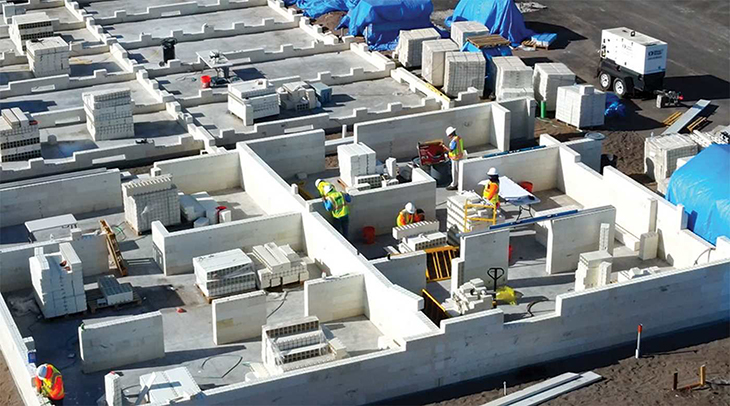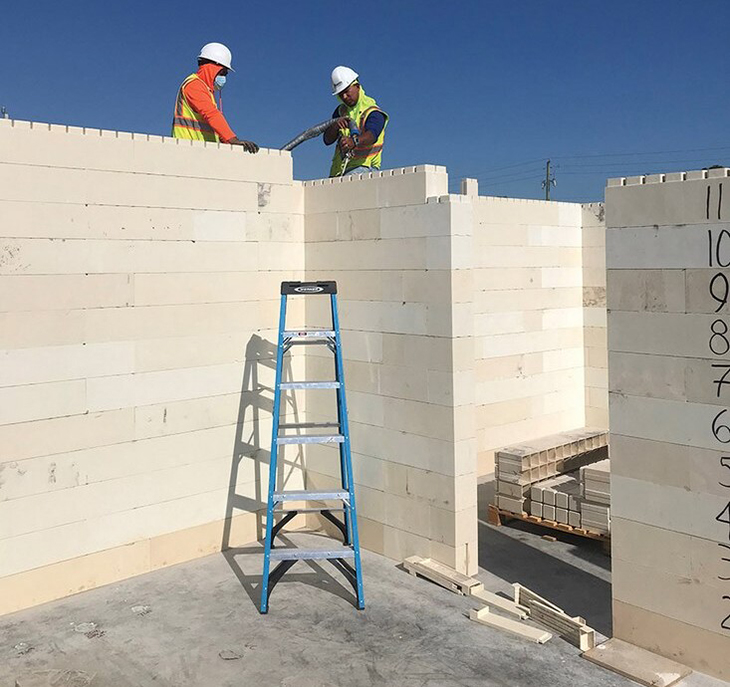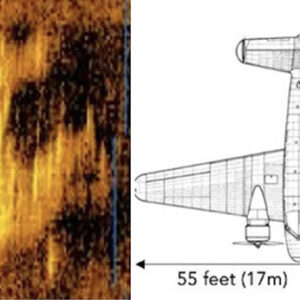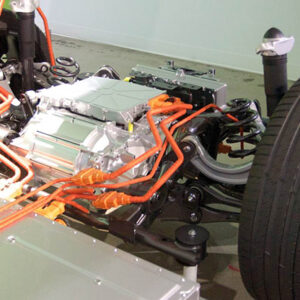
In a groundbreaking development that promises to reshape the construction industry, a Florida-based construction firm is witnessing rapid adoption of their ingeniously designed building blocks that function much like real-life LEGO bricks.
These interlocking blocks, crafted from a mineral composite and fortified with glass fiber, can be assembled swiftly and quietly to construct walls, floors, and even roofs, requiring nothing more than a special adhesive and a rubber mallet as the sole tools of the trade.
This innovative construction technique offered by Renco USA draws inspiration from injection molding processes, enabling the transformation of raw materials into a wide array of shapes, including standard LEGO-like bricks and structural components such as roof beams and joists. Unlike traditional, construction methods, these blocks eliminate the need for heavy cutting, welding, or masonry on-site.
Moreover, contractors engaged in installing plumbing, ventilation, or electrical systems can seamlessly work with the finished block walls, treating them just like conventional concrete structures.
Notably, this innovative approach to construction has already seen successful implementation in a project near West Palm Beach, where a $21 million, 96-unit housing complex is being constructed by a mere 11 workers employing the blocks and adhesive. The absence of cranes, lifts, bench saws, or metal cutting equipment has resulted in a quiet construction site, with neighbors hearing nothing more than the soft thud of rubber mallets.
As per industry reporters, the construction industry in the United States has been grappling with ongoing labor shortages and the unpredictability of markets for both steel and concrete, making the traditional building strategies, which have been in use for over a century, increasingly challenging to create budgets for.
Renco’s ingenious building system leverages standard materials from other industries, such as methyl methacrylate glue commonly employed in heavy vehicle manufacturing, along with recycled glass fiber to reinforce supply chain stability and create cost-effective and predictable solutions for constructions projects.
Renco co-founder Tom Murphy, Jr. told Engineering News Record, “We worked on this [system] for more than 10 years. We had to keep changing it to make it better and easier to work with. As we did that, making a building with it got faster and easier, and… the building got stronger each time.”
In addition, due to Florida’s more tropical weather conditions, the early adoption tests show that the blocks have managed to remain durable and show properties normally associated with the longest-lasting building materials.

These LEGO-inspired building materials are designed to endure extreme weather conditions, with the ability to withstand wind speeds of up to 275 mph. Furthermore, the naturally occurring resin used in the injection molding process prevents moisture absorption and effectively wicks it away.
Additionally, these blocks demonstrate insect-repellent properties, a testament to their robust composition, as illustrated in a test where a section of blocks was placed in a terrarium with a queen termite and 99 males. A month later, the blocks remained intact surrounded by the lifeless insects.
The company’s promising trajectory is further highlighted by a recently concluded funding round that netted an impressive $18 million. In combination with their state-of-the-art manufacturing facility in Jupiter, Florida, capable of producing materials for 6,000 apartments, and the successful construction of 96-unit housing complex in Palm Beach, Renco, USA is poised for a significant breakthrough in the construction market.
As the construction industry grapples with the need for innovative, cost-effective, and sustainable building solutions, the advent of these LEGO-inspired building blocks stands as a beacon of hope, offering a viable alternative to the traditional construction methods of the past century. With durability, weather resistance, and ease of assembly at its core, this technology may very well shape the future of construction across the nation and beyond.
Smuts told ENR, “Jupiter will be able to produce 6,000 apartment units’ worth of material per year. There’s 1.5 million housing starts in the U.S. on an annualized basis. There’s roughly a 5-million housing-start backlog that I don’t think anyone’s ever going to catch up with.”
What are your thoughts? Please comment below and share this news!
True Activist / Report a typo


